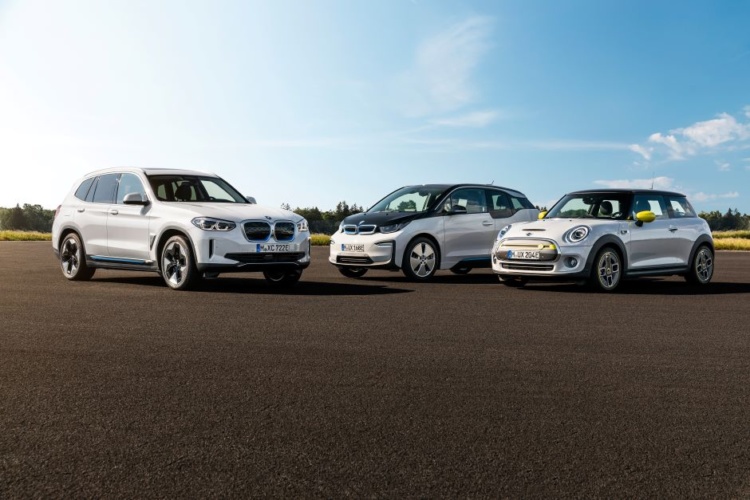
BMW will supply Rugby-based Off Grid Energy with battery modules for them to adapt to create mobile power units.
Second life for repurposed EV batteries in off grid locations
In a statement, Graeme Grieve, CEO BMW Group UK, said: “BMW Group will have 25 electrified models on the roads by 2023 – half of them fully electric. We are delighted to work with Off Grid Energy to find a sustainable way of continuing to use these valuable batteries, even after they have put in many years of service in our electrified cars.”
BMW and MINI EV batteries have a warranty of eight years (or 100,000 miles) after which the battery could still retain up to 80 per cent of its initial capacity. The battery can continue to serve a ‘secondary use’ as a mobile power source once it has degraded to the point where it no longer functions optimally for the car.
According to BMW, a prototype unit is running, powered by lithium-ion battery modules from a MINI Electric development vehicle. It is said to have a 40kWh capacity delivering a 7.2kW fast charge and will be used at BMW and MINI UK events over the next year.
As more battery modules become available, systems will be built with a capacity of up to 180kWh and able to provide multiple charges at rates of up to 50kW.
Announcing initial details of BMW’s sustainability strategy in July this year, CEO Oliver Zipse said: “How we use resources will decide the future of our society – and of the BMW Group. As a premium car company, it is our ambition to lead the way in sustainability. That is why we are taking responsibility here and now.”
The BMW Group expects electrified cars to account for between 15-25 per cent of the company’s global sales before 2025. By 2021, a quarter of the vehicles sold by in Europe by BMW will be electrified, with that figure expected to rise to a third by 2025 and half by 2030.




Poll: Should the UK’s railways be renationalised?
All public service companies should be nationalised for many different reasons, particularly railways, not the least because the tax payer has already...